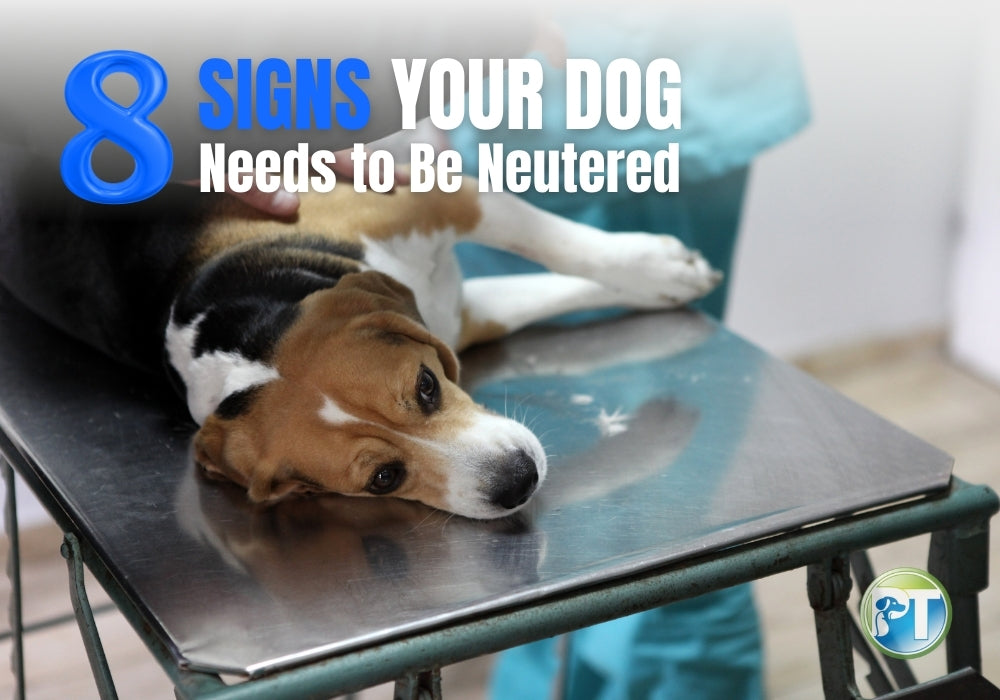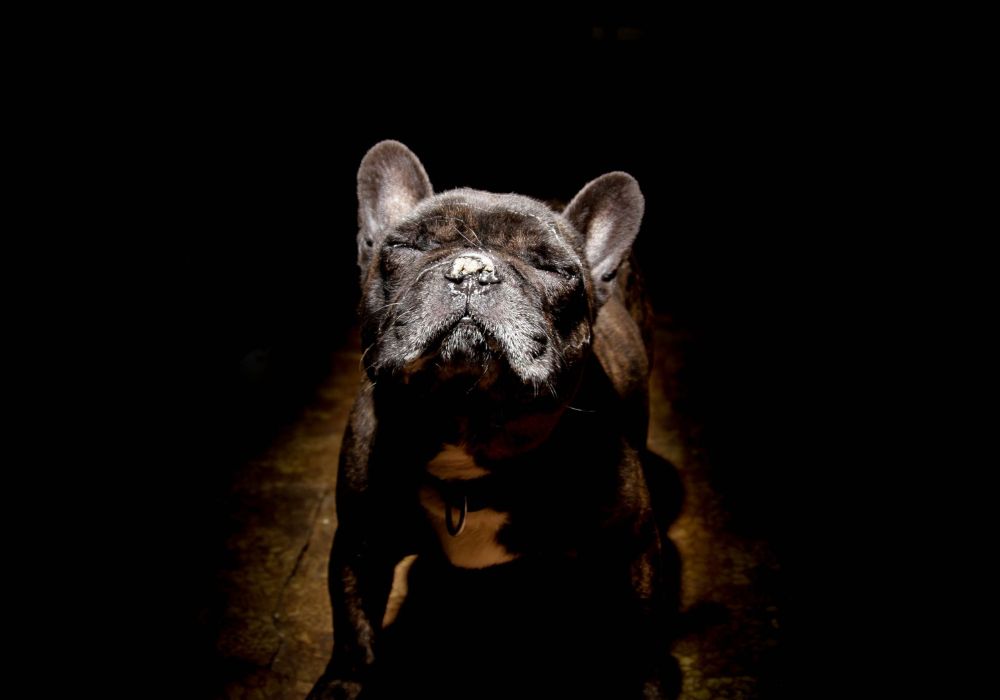8 Signs Your Dog Should Be Neutered for Health & Behavior

Neutering is an important decision that can significantly impact your dog’s health, behavior, and overall well-being. If you’re wondering whether your dog needs to be neutered, you've come to the right place. This guide will provide insights into the signs, benefits, risks, and key considerations for this procedure.
What Is Neutering?

Neutering, also known as castration, involves surgically removing a male dog’s testicles. This procedure reduces testosterone production, which helps control unwanted behaviors and minimizes health risks. Veterinarians often recommend neutering as part of responsible pet care to prevent overpopulation and address hormone-driven issues.
8 Signs Your Dog Needs to Be Neutered
If your dog displays the following behaviors, it could be a sign that neutering may benefit them:
1. Persistent Marking

If your dog frequently urinates on furniture, walls, or other objects indoors, this could signify territorial marking. Neutering often reduces or eliminates this habit. Ensure medical causes like urinary infections are ruled out first.
2. Aggressive Behavior

Unneutered males can show heightened aggression due to testosterone levels. This can lead to dominance struggles, especially with other male dogs. Neutering helps reduce these tendencies.
3. Wandering Tendencies

Male dogs may escape to seek a mate, which increases their risk of getting lost or injured. Neutering significantly curtails this urge to roam.
4. Hyperactivity and Restlessness

An unneutered dog might seem constantly on edge or unable to relax, especially when female dogs in heat are nearby. Hormones could be the cause, and neutering may help.
5. Increased Humping

Mounting and humping behaviors—directed at objects, people, or other animals—can be a sign of hormonal urges. Neutering reduces these urges by lowering hormone levels.
6. Obsession with Other Dogs

An unneutered dog may become overly fixated on other dogs, particularly females, during walks or outings. Neutering can reduce this distraction and make interactions smoother.
7. Constant Sniffing

If your dog seems fixated on sniffing everything in their environment, particularly where other dogs have been, this can signal high testosterone levels.
8. Territorial Guarding

Growling, barking, or protecting spaces like beds or toys can indicate territorial instincts amplified by hormones.
When Is the Right Time to Neuter Your Dog?
Most veterinarians recommend neutering small dogs between 6 and 12 months of age, depending on breed and size. Larger breeds might benefit from waiting until 9–18 months to allow for full physical maturity. Consult your veterinarian to determine the best timing based on your dog’s health and development.
Key Benefits of Neutering Your Dog
Neutering offers a range of advantages, both for your dog and the community:

1. Reduces Pet Overpopulation
By preventing unplanned litters, neutering helps reduce the number of dogs in shelters and rescue organizations.
2. Lowers Cancer Risk
Neutering eliminates the risk of testicular cancer and lowers the chances of prostate issues and other hormone-related health concerns.
3. Improves Behavior
Dogs often become less aggressive and easier to manage post-neutering. Behaviors like marking and humping are significantly reduced.
4. Ensures Safety
Neutering diminishes the likelihood of your dog roaming, reducing risks associated with getting lost or injured.
5. Prevents Genetic Conditions
Neutering prevents dogs with undesirable genetic traits or health issues from reproducing.
What Are the Risks of Not Neutering?
Not neutering your dog can lead to several problems, including:
-
Increased risk of testicular and prostate cancers
-
Persistent hormone-driven behaviors like aggression and marking
-
Unintended pregnancies contributing to overpopulation
-
Wandering behavior, which increases accident risks
Understanding the Potential Risks of Neutering
While neutering is widely considered safe, it’s important to be aware of potential complications, such as:
-
Surgical Risks: Though rare, complications like infections or bleeding can occur.
-
Weight Gain: Neutered dogs may have slower metabolisms and require a balanced diet and regular exercise.
-
Behavioral Changes: Some dogs may experience temporary shifts in personality or energy levels.
Consult your vet to address any concerns and ensure a smooth procedure and recovery.
FAQs: All About Neutering
Do male dogs calm down after being neutered?
-
Yes, neutering often reduces aggression and hyperactivity. Many dogs become more focused and easier to train.
What is the best age to neuter a male dog?
-
It’s generally recommended to neuter your dog once they’ve finished their growth spurt. For smaller breeds, this is typically around 6 to 12 months, while larger breeds may need to wait until 9 to 18 months.
Will my dog be OK if I don't neuter him?
-
While your dog can still live a healthy life, you may face challenges such as aggression, roaming, and increased cancer risks.
How do male dogs act when not neutered?
-
Unneutered males are often more territorial, aggressive, and prone to roaming and marking.
What happens if you wait too long to neuter your dog?
-
Delaying neutering can make hormone-driven behaviors habitual and increase the risk of certain cancers. However, older dogs can still safely undergo the procedure if healthy.
Final Thoughts
Neutering is a responsible choice that benefits both your dog and the community. By understanding the signs and consulting with a veterinarian, you can make an informed decision about when and whether to neuter your dog.
You might also enjoy...
-
Posted in
Pet Health


